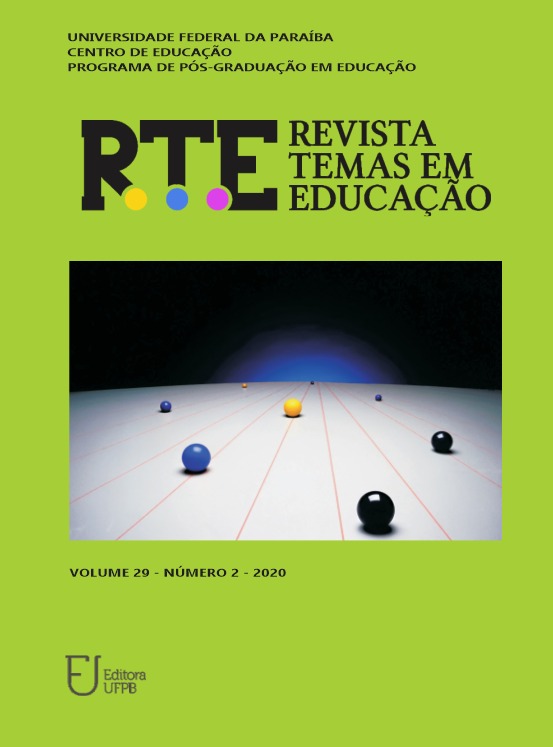READING CONCEPTIONS IN BRAZILIAN AND MOZAMBICAN NATIONAL READING PLANS
READING CONCEPTIONS IN BRAZILIAN AND MOZAMBICAN NATIONAL READING PLANS
DOI:
https://doi.org/10.22478/ufpb.2359-7003.2020v29n2.53326Keywords:
Teaching Reading, Literacy, Reading policiesAbstract
It is important to know the reading conceptions which support its practice. To do so, Brazilian and Mozambique national reading plans were analysed in order to identify the reading conceptions that underlie them, and the possible convergence and divergence points between them. The study resorted to a documentary analysis of the official booklets presenting these policies. This analysis allowed to understand that none of the plans mentioned in depth the reading conceptualizations, although the Brazilian plan explicitly announces a vision of reading as being a social practice and the Mozambican plan oscillates between different perceptions of the reading act. In addition, the first one privileged access to books as a cultural asset, while the second one directs special attention to the reading promotion in the school sphere. Despite such dissonances, on both plans the reading competence is identified as a condition and/or an instrument for the citizenship exercise and for the cultural diversity affirmation.
Downloads
References
BRASIL/MinC/MEC. PNLL - Plano Nacional do Livro e Leitura. MinC/MEC: Brasília-DF, 2007. Disponível em: <https://www.oei.es/historico/fomentolectura/pnll_brasil.pdf>. Acesso em: 20/05/2020.
DUARTE, S. M. X.; MARCUSCHI, B. “Documentos oficiais do Ensino Médio e formação do leitor”. DLCV - João Pessoa, v.8, n.1, jan/jun 2011, pp. 39-56.
IBGE. Censo 2010: população indígena é de 896,9 mil, tem 305 etnias e fala 274 idiomas, 2012. Disponível em: <https://censo2010.ibge.gov.br/noticias-censo?busca=1&id=3&idnoticia=2194&t=censo-2010-poblacao-indigena-896-9-mil-tem-305-etnias-fala-274&view=noticia>. Acesso em: 20/05/2020.
INE. IV Recenseamento geral da população e habitação 2017 - resultados definitivos. INE: Maputo, 2019. Disponível em: <http://www.ine.gov.mz/iv-rgph-2017/mocambique/censo-2017-brochura-dos-resultados-definitivos-do-iv-rgph-nacional.pdf>. Acesso em: 20/05/2020.
MOÇAMBIQUE/MINEDH. Plano Nacional de Acção de Leitura e Escrita (PNALE) - Ler e escrever em casa, Ler e escrever na escola, Ler e escrever na comunidade. MINEDH: Maputo, 2017. Disponível em: <https://www.joint.org.mz/public/assets/documentos/c2a6e333919693b508262e599a2a0b4b.pdf>. Acesso em: 20/05/2020.
NÓVOA, A. “Tempos da escola no espaço Portugal-Brasil-Moçambique: Dez digressões sobre um programa de investigação”, Revista Brasileira de História da Educação, n° 1, jan./jun. 2001, pp. 161-186.
SOARES, M. “Leitura e democracia cultural”, in. PAIVA, A.; MARTINS, A.; PAULINO, G.; VERSIANI, Z. (Orgs.). Democratizando a leitura: pesquisas e práticas, Belo Horizonte: Ceale - Autêntica, 2008, pp. 17-34.
VILAR, M. I. G. M. V. O Plano Nacional de Leitura: fundamentos e resultados. Tese de Doutoramento - Faculdade de Ciências Sociais e Humanas, UNL: Lisboa, 2016.
Downloads
Published
How to Cite
Issue
Section
License
Authors who publish in this journal agree to the following terms:
. Authors retain the copyright and grant the journal the right to first publication, with the work simultaneously licensed under the Licença Creative Commons Attribution that allows the sharing of the work with acknowledgment of authorship and initial publication in this magazine. . Authors are authorized to assume additional contracts separately, for non-exclusive distribution of the version of the work published in this journal (eg, publishing in institutional repository or as a book chapter), with acknowledgment of authorship and initial publication in this journal.
. Authors are permitted and encouraged to publish and distribute their work online (eg in institutional repositories or on their personal page) at any point before or during the editorial process, as this can generate productive changes, as well as increase impact and citation of the published work (See O Efeito do Acesso Livre).



















